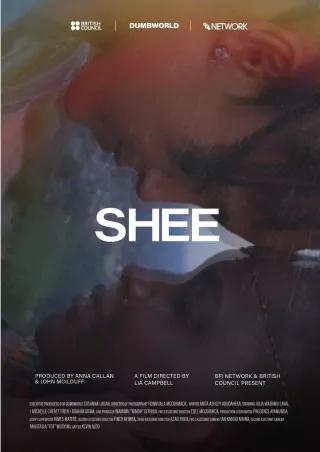A few weeks ago, we organized the inaugural Gender Forum to coincide with International Women's Month. In collaboration with Aduda Hera, a talented actress, producer, and filmmaker, we screened the poignant short film "Shee." This film delves into the intricacies of love, trust, and communication within a same-sex relationship. Aduda, the creative force behind the film, shared her motivations and insights into sparking meaningful conversations beyond mere storytelling.

I have had many moments in my life that required me to be brave.
I often lived with the anxiety of an unforeseen ball dropping. I quickly learnt that anxiety is a trait that requires one to borrow fear from the future. With the debt crisis I felt that perhaps borrowing isn’t something I should make a priority.
The making of this film was extremely personal yet completely separate from who I actually am. I have never been pregnant, or found myself in a position of possibly being pregnant. A privilege to those who choose not to have children, admittedly so.
The thought process that goes into making the right choice of contraception, for example, is not clear-cut. The consequences and/or side effects of the various contraceptive options presented to us are diverse, as they are averse to the majority of women who use them. Family planning and contraceptives, as well as access to and agency to Sexual Reproductive Health Rights (SRHR) is a privy of the few with many women or female identifying persons widely marginalized to these services. In Kenya, the norm is for the person of ‘female gender’ to orchestrate and maintain. Sounds completely fair, you know me, I am not one to complain. It is therefore, and this is strictly in my opinion, a gendered conversation.
Yet, there is still a demographic of people who want to have children.
Now I am a uterine individual, the number of times I have been reminded about my biological clock has been numerous. I truly shudder and despair at the thought of how difficult that journey might be. I am painfully aware of my options, but what happens if I, for example, feel prepared to have children in my 40s? One would assume that if men have the ability to sire children at an advanced age, the same would apply for women. Not so much.
The options are limited, expensive and often out of the reach of what society refers to as “regular folk”.
The film Shee, tells a story of the reality shared above. What do reproductive rights mean for queer people living in Kenya? What are the available options to them? Why is it that a same sex couple would be castigated for existing? Why?
In a world of utopia, this topic would be a non-issue. We hope that, in its own way, the film Shee, lends its voice to advocacy for LGBTI persons. This is why spaces like this 'Gender Forum, are so important. They create safe spaces for information sharing, especially on resources available to people who actually need it. These forums also gives this community a chance to celebrate their existence. In times such as this, where there is a human rights crisis, holding each other’s hands and sharing a cup of tea in a room filled with allies might be a lot to ask for. That in itself, and this is hilarious even to me, is an incredible sign of bravery.
Sometimes regular life is simply an avenue to procreate safely and by choice.
As many of us might agree, timing is everything.
My hope is that it gets easier. That we can be brave through it all.
Aduda Hera is a Kenyan writer, director and producer based in Nairobi. She completed her Film Production qualification at Filamujuani Film Foundation, which involved working across various areas of production, distribution, screenwriting, and editing. Aduda now works as the Co Founder and Managing Director at Sarelle.Co, a creaDve film production and marketing agency company based in Nairobi, Kenya. When writing Shee, Aduda drew upon her own experience as part of the LGBTQIA+ community in Kenya. Through Shee, she wants to start a conversation about the experiences of the LGBTQIA+ community in Kenya and address the emotional and governmental obstacles they face